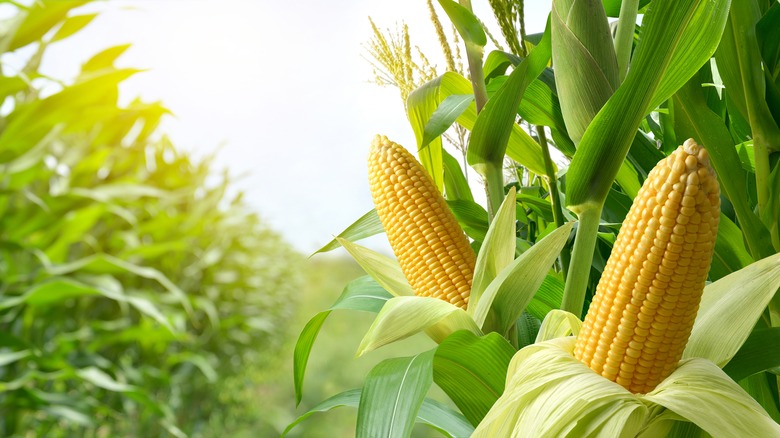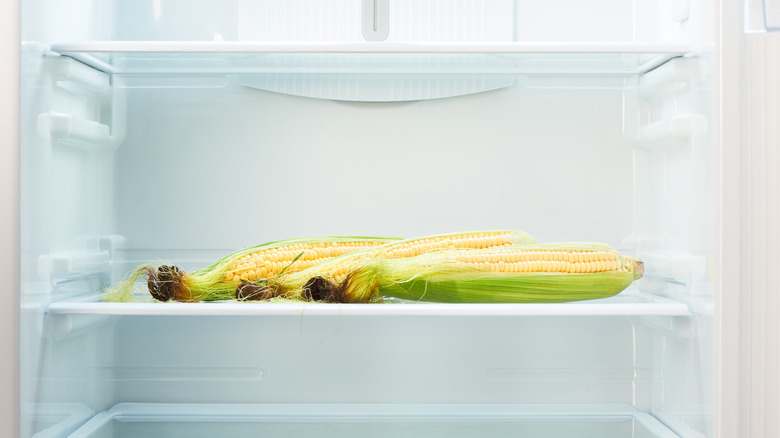Do You Need To Refrigerate Corn On The Cob?
When you look out over a field of corn, chances are good that you'll never taste a single kernel of it. Why? Because only 1% of the corn grown in the US is sweet corn, the kind people eat (via Iowa Corn). The rest of this produce you see in fields is field corn, which is used to make ethanol, feed livestock, and make all kinds of other manufactured goods. And if you were to pick an ear of field corn, you'd be unpleasantly surprised. This is because the sweet variety not only has been bred to have high sugar levels, but it's also harvested when it's young and tender, while field corn is picked after its ears have dried out, so it's easier and more stable to ship, according to Nebraska CornBoard.
Sweet corn is valued for its sweetness, naturally, so those tender, juicy kernels are what you're attempting to preserve when you consider how to store this produce. You know your strawberries need to be refrigerated, but what about your sweet corn on the cob? How should you store your ears of corn so all 800 kernels stay fresh?
Corn on the cob should be refrigerated
Corn on the cob is at its best immediately after it's harvested. However, according to Eat Right, the clock is running as soon as you or your local farmer picks it, and the produce begins to lose its sweetness. For best results, ears of corn, complete with husks, should be refrigerated right away to keep them sweet for a longer period. Eat Right recommends you eat the produce within a day or two after they've been picked, while CNET says the optimal window is five to seven days.
If you don't refrigerate your sweet corn, its naturally high sugar levels start converting to starch, which means it won't taste as sweet, and the kernels won't be as tender and juicy, explains the Iowa Agriculture Literacy Foundation. Should you happen to purchase more sweet corn than you can use in a few days, another great way to keep it sweet and fresh is by freezing it. The Pioneer Woman recommends blanching the corn, drying each ear, then tightly sealing it before freezing for up to nine months.

